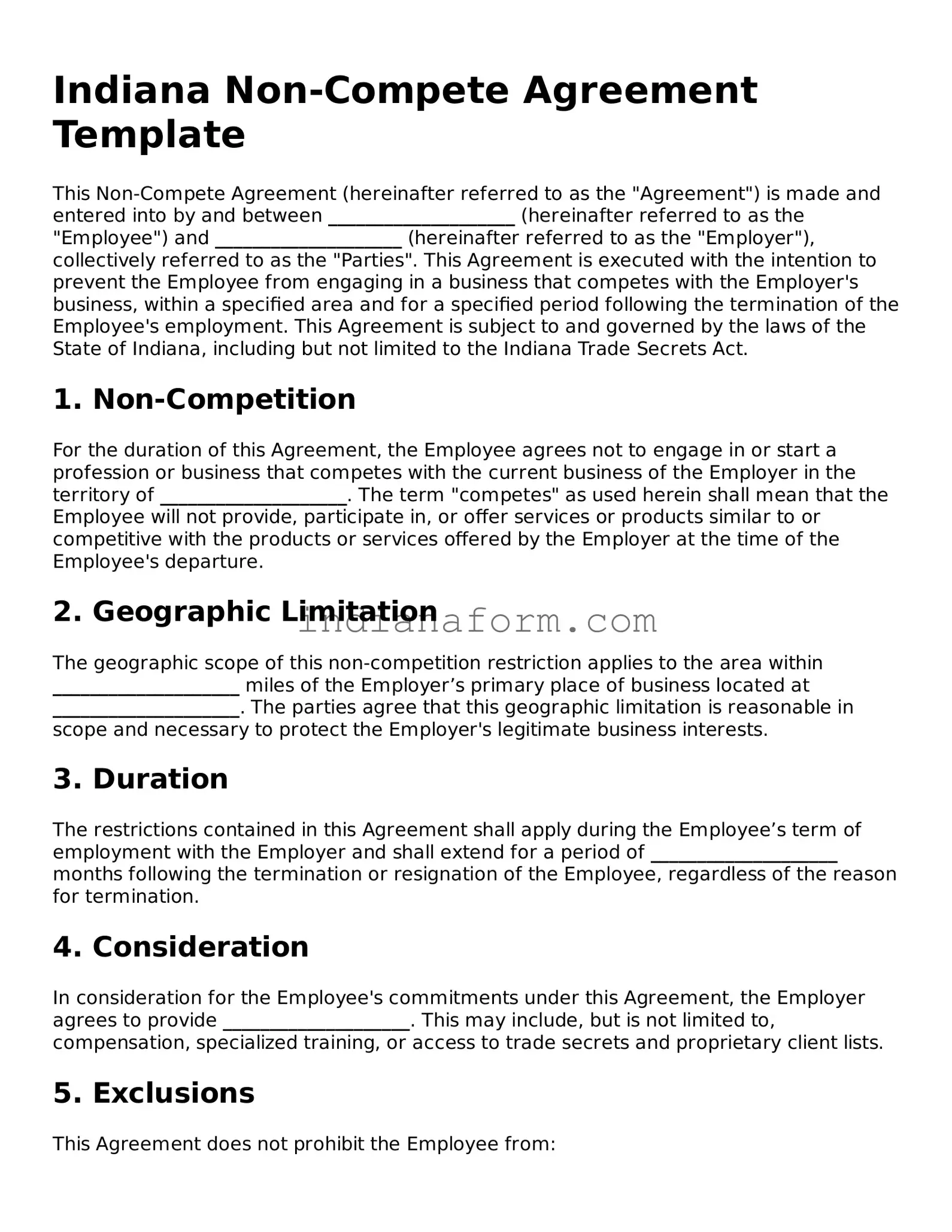Indiana Non-Compete Agreement Template
This Non-Compete Agreement (hereinafter referred to as the "Agreement") is made and entered into by and between ____________________ (hereinafter referred to as the "Employee") and ____________________ (hereinafter referred to as the "Employer"), collectively referred to as the "Parties". This Agreement is executed with the intention to prevent the Employee from engaging in a business that competes with the Employer's business, within a specified area and for a specified period following the termination of the Employee's employment. This Agreement is subject to and governed by the laws of the State of Indiana, including but not limited to the Indiana Trade Secrets Act.
1. Non-Competition
For the duration of this Agreement, the Employee agrees not to engage in or start a profession or business that competes with the current business of the Employer in the territory of ____________________. The term "competes" as used herein shall mean that the Employee will not provide, participate in, or offer services or products similar to or competitive with the products or services offered by the Employer at the time of the Employee's departure.
2. Geographic Limitation
The geographic scope of this non-competition restriction applies to the area within ____________________ miles of the Employer’s primary place of business located at ____________________. The parties agree that this geographic limitation is reasonable in scope and necessary to protect the Employer's legitimate business interests.
3. Duration
The restrictions contained in this Agreement shall apply during the Employee’s term of employment with the Employer and shall extend for a period of ____________________ months following the termination or resignation of the Employee, regardless of the reason for termination.
4. Consideration
In consideration for the Employee's commitments under this Agreement, the Employer agrees to provide ____________________. This may include, but is not limited to, compensation, specialized training, or access to trade secrets and proprietary client lists.
5. Exclusions
This Agreement does not prohibit the Employee from:
- Engaging in any business activity that does not compete directly with the Employer,
- Seeking employment in a different industry, or
- Using skills and knowledge that are not proprietary or unique to the Employer’s business.
6. Legal Remedies for Violation
If the Employee breaches or threatens to breach the terms of this Agreement, the Employer is entitled to seek all available legal remedies, including but not limited to seeking injunctive relief to prevent such breaches, and to recover damages resulting from any breach.
7. Severability
Should any provision of this Agreement be held invalid or unenforceable, such provision will be modified to reflect the parties' intention. All remaining provisions of this Agreement will remain in full force and effect.
8. Entire Agreement
This document represents the entire agreement between the Parties regarding the subject matter hereof and supersedes all prior agreements or understandings, whether written or oral. No amendment, change, or variance from this Agreement will be binding on either party unless mutually agreed upon in writing.
Signature
IN WITNESS WHEREOF, the Parties have executed this Non-Compete Agreement as of ____________________.
Employee Signature: ____________________________________________
Employer Signature: ____________________________________________
Date: ____________________________________________

